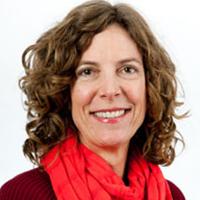At a New York Times public event this week, World Bank President David Malpass, who was nominated to the position by former U.S. President Donald Trump, refused to say whether the burning of fossil fuels is causing climate change. While he backpedaled yesterday in an interview on CNN International, his initial statement has reignited public discussion about whether the World Bank is doing enough to help low-income countries being battered by climate change and whether it should reconsider halting financing for fossil fuel projects that are contributing to the problem.
Below is a statement by Johanna Chao Kreilick, president of the Union of Concerned Scientists.
“The spectacle this week of World Bank President David Malpass being unable to answer the simple question of whether climate change is human caused was appalling and disgraceful. Unfortunately, this isn’t a new position for Mr. Malpass, who has long failed to address the topic of climate change head-on during his tenure.
“As one of the largest public development institutions in the world, the World Bank has a mission to end extreme poverty and build shared prosperity. And this mission is inextricably linked to climate change, which science has irrefutably established is driven primarily by human-caused fossil fuel emissions. Climate extremes and slow onset disasters like sea level rise are threatening lives and livelihoods in low-income countries, driving more people into poverty. The World Bank’s choices on lending for energy projects are profoundly consequential for charting a path for countries to break free of polluting fossil fuels and transition to clean energy.
“Climate denialism has no place in a world where millions of people are suffering from the ravages of this crisis despite having contributed very little to the problem themselves—from the terrible floods in Pakistan to the prolonged drought in the Horn of Africa and the devastation in Puerto Rico from Hurricane Fiona.
“The World Bank is a critical institution serving low-income countries. People living in the Global South deserve to have the World Bank led by a fierce climate advocate, not someone who hasn’t spent enough time with the bank’s deep bench of scientists and experts to understand the most basic facts about the causes of climate change. Mr. Malpass should be replaced immediately.”
